WITNESS RADIO MILESTONES
Museveni private secretary grilled over directives on Land Fund payments
Published
7 years agoon

Byenkya: Please, state your name in full?
Kamukama: My name is Nawe Molly Kamukama
Byenkya: How old are you?
Kamukama: 45
Byenkya: What do you do for a living?
Kamukama: I work as a permanent secretary in the private Office of the President, which gives me the title of the Principal Private Secretary to the President.
Byenkya: And how long have you been doing this?
Kamukama: I was appointed in November 2016 as a permanent secretary.
Byenkya: You were invited here because we are conducting investigations into the operations of the Uganda Land Fund and it turned out that you had done some correspondences in relation to the Fund.
Kamukama: Yes
Byenkya: It has come up in different situations but among the witnesses we interviewed was the Minister for Lands, Ms Betty Amongi, and as we were discussing payments from the Land Fund and their criteria for making payments, she had a category called presidential directives. What do you know about this situation where there are presidential directives in respect of the Land Fund, whether you are aware the President makes directives of any sort?
Kamukama: My lord, part of my job is that I receive correspondences from the public, government agencies, ministries and departments. Some of them are petitioning the President on matters such as land encroachment from any area in the country. I cannot take such a letter to the President because it is just a claim and the President is not in his ordinary duties engaged in land matters. What I do is direct it to the line ministry. This because whereas it is a petition to the President, in essence, it is a petition to government, so it has to go to where there are technically competent people employed by government to answer to it. The ministry is requested to attend to it and manage. They are supposed to go on the ground, evaluate and see within the law what decision to make. And because it comes from the President, we require that whichever decision they will have made, they return to us to inform the President. Sometimes a matter can be on lands but it has a security component, may be somebody says people are threatening his life, so where life is threatened, you are not going to write only to the Lands ministry, you also have to write to the minister of Security to ensure that life is protected. That is how those letters come about and I am always telling them to attend and manage appropriately.
Byenkya: From your explanation, your letters are referrals of a petition of an issue?
Kamukama: Yes
Byenkya: And they are not directives?
Kamukama: Directives are written as such, by the way. For the directives to be written either by the President or myself, all the issues relating to that matter will have come to light. That means a directive is a decision in itself. It would be written, saying: “I direct you to do A, B, C…,” because the facts are clear either to the President or to myself. But normally directives are written as such and I am sure in your course of work, you will meet them.
Byenkya: So, if the President was making a directive, the title would be directive, it would not be a request?
Kamukama: The content in that letter would clearly state that it is a directive.
Byenkya: For comparison, Kamukama, I have a letter that the President wrote to the minister of Finance, Mr Matia Kasaija. May be you just look at it and have an idea what we should interpret that to be. It relates to the Land Fund as well [hands her the letter].
Kamukama: This is a letter from the President and I do not think I can really answer for him.
Byenkya: No, I just want you to interpret; is that a directive in your opinion?
Kamukama: I mean, a directive, don’t you see that statement on the last line?
Byenkya: Just read the statement
Kamukama: The statement reads, “I direct you to pay…”
Byenkya: So that would typically be how the President will do it.
Kamukama: Yes, because if you look through the content, he has already put the facts and he knows them.
Byenkya: In the letters you wrote, would you use similar language?
Kamukama: I would not because I would not be having facts on that matter because it is a claim from the public or department. When you say management, part of management is investigation, evaluation and all those things. Until that is done and clear to all government officials that these are the real facts, you cannot direct.
Byenkya: I wanted you to look at this letter written by Ms Amongi and read a couple of paragraphs and indicate the date.
Kamukama: (reads) November 23, 2016 addressed to the Chairperson of Uganda Land Commission
Byenkya: Read the title and the first paragraph.
Kamukama: (reads); The title is urgent payment for land compensation.
I refer to my earlier letter dated November 15 and taken into account the need for urgent compensation for the following beneficiaries for the Land Fund and reviewed my earlier position and allow the accounting officer ULC to pay the underlisted people for the available land fund resource for this quarter.
Byenkya: I want you to look at the columns and read out.
Kamukama: The authority to pay?
Byenkya: Yes, start the name and the authority to pay.
Kamukama: I see they have said letter by PPS to the President .
Byenkya: Yes, first read them out for the record and then we discuss it.
Kamukama: Letter by PPS to H.E the President for three of them.
Byenkya: Why I am bringing it to your attention is that this is the way your letters have been misinterpreted and applied.
Kamukama: By?
Byenkya: Well, in this case by the Minister for Lands. She is the author of that letter.
Kamukama: You should crosscheck the letters I wrote and see if they relate to this matter. I write to the minister or the permanent secretary for their attention and management. How they choose to manage, operate, they have the laws. I would not know what laws are governing the Land Fund; I do not know what criteria they use, how they go about their business. It cannot be that they are using just my letters. My duty is to bring it to their attention to act because even when this person is petitioning the President, it is about land and the land matters go to the ministry who are most suitable to do the work.
Byenkya: What concerns us is that when you write these letters, you also appreciate that they could be used in all sorts of ways and they could be used to appear to give the endorsement of the President’s office to a claim.
Kamukama: These letters are not only directed to ministry of Lands; they are directed to all government ministries and agencies and the Attorney General because in our ordinary work, we receive about 300 letters in a day. All those matters come from the public and they need to be attended to. Sometimes they come from a different ministry and they raise it to the President. So before it goes to the President, it has to be evaluated by all the concerned relevant bodies. By the way, when I get reports from ministries, I read through and brief the President who will sometimes direct me to write a Cabinet paper so that it moves to inform the policy.
Byenkya: This is why it is important for us to have this kind of discussion because I think you will appreciate that your letters carry the authority of the Office of the President. So, we do not want them to be misunderstood or misapplied.
Kamukama: I do not know what they use it for because every ministry has their terminology, which they use in their work. I also get letters from the ministers as an accounting officer and we use those letters and they are eventually paid but you pay within the law.
Byenkya: I agree that you should not abandon your mandate as an accounting officer but do you think in this case, your letters, the way you write them, do you think it is proper for somebody to categorise them as authority to pay?
Kamukama: I do not know what they categorise as authority to pay because for me, my issue is that I would have raised the matter with you. So the management of that matter is up to you and eventually when you make your informed decision as an accounting officer, then you brief the President because those letters are actually addressed to him. For all of us who are working and handling, we are handling them on his behalf. So he has to be informed.
Byenkya: Why I put a mark on those particular payments is because they have one common story you might have heard about by now if you have been following the proceedings of the commission. We had a witness called Richard Buzibira (lawyer), do you know him by any chance?
Kamukama: No
Byenkya: Buzibira was supposed to be an attorney of various people and received Shs13 billion from the land fund. These particular three names I marked use your letter being used as authority to pay; they are all payments which actually went to Buzibira and formed part of this Shs13 billion…. Buzibira gets to the land fund and gets paid and one of the things that he gets armed with is this letter from PPS to the President… The point is, we think these payments are not proper, when you look at the trend, pattern, frequency and amount, it seems to be a big scheme. This is why I want I wanted us to discuss for these letters flying out and people using them as an excuse to pay.
Kamukama: When you say letters are flying around, letters cannot fly around, no. these are serious matters. Somebody has written to the President; that cannot be a fly around document.
Byenkya: It was a kind of phrase to show that they are just so many.
Kamukama: Yes, there are so many letters and all of them require attention because they need a service from the government and they petitioned the overall boss of the Republic of Uganda. So, the relevant ministries, agencies and departments must look into those matters and investigate how true it is. If we receive such a petition as the Office of the President and keep quiet, what will happen to the petitioner? If you release such a document to the President, the answer you are going to get is ‘what do you want me to do with this? Where are the facts?’. That is why I write to the relevant ministries and actually sometimes it is the legal department that does the writing.
Byenkya: My final question to you would be; are there any lessons to learn because people with questionable claims got paid and in billions? Is there a way we can make sure that the authority of the President is not misunderstood or misused?
Kamukama: I think the authority of the President is known but I think what we need as a way forward is that more safeguards should be provided so that there are more stringent approvals on these payments so that more eyes can look at the claim, including Cabinet, because at the end of it all, the President and Cabinet members are answerable to the public.
Source: Daily Monitor
…
Related posts:
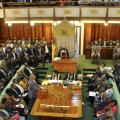
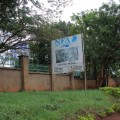 Museveni orders giveaway of NFA land to Swiss firm
Museveni orders giveaway of NFA land to Swiss firm
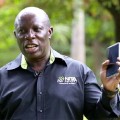 NITA boss cited in Shs 928m Land Fund mess
NITA boss cited in Shs 928m Land Fund mess
 Land probe saved government over Shs1 trillion in irregular payments, says Bamugemereire
Land probe saved government over Shs1 trillion in irregular payments, says Bamugemereire
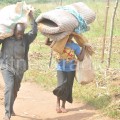 Land grabbers are ‘too powerful’, defied COVID-19 lockdown directives on land eviction – Gov’t
Land grabbers are ‘too powerful’, defied COVID-19 lockdown directives on land eviction – Gov’t
You may like
-


A tree planting Chinese Company, Formosa Limited in fresh illegal land eviction…
-
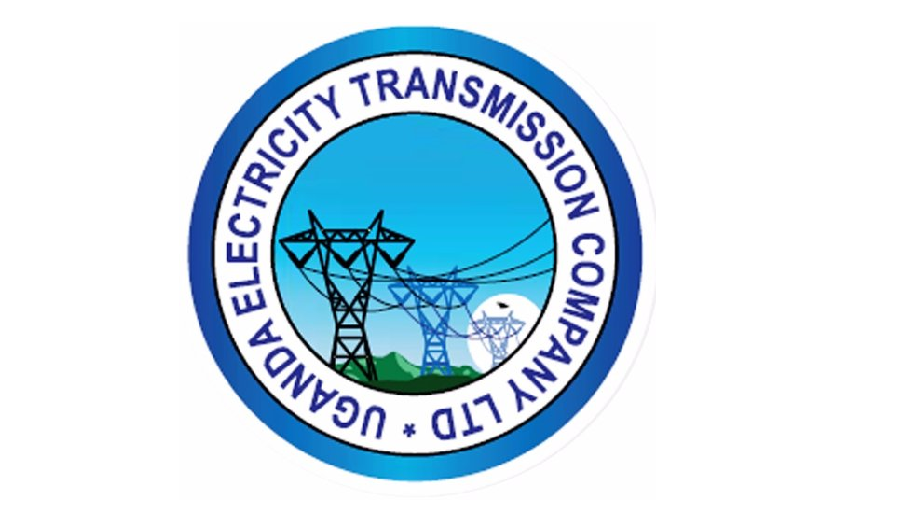

Electricity Transmission Company holds titles in Masaka as residents point to foul play
-


A long journey to freedom: Trial of 10 community members in Mityana flops
-
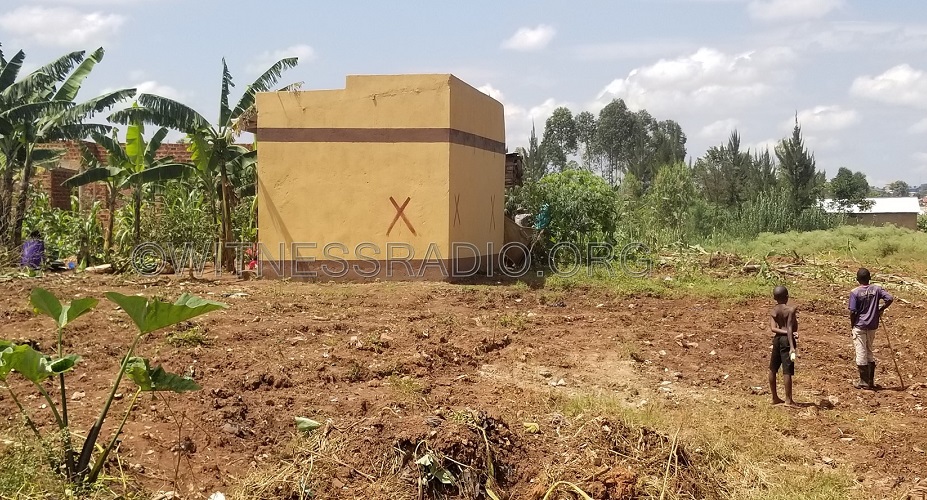

Tension as more than 300 poor families are being evicted by a World Bank-funded project…
-


Sad tales of how grabbers use foolery to grab community land
-
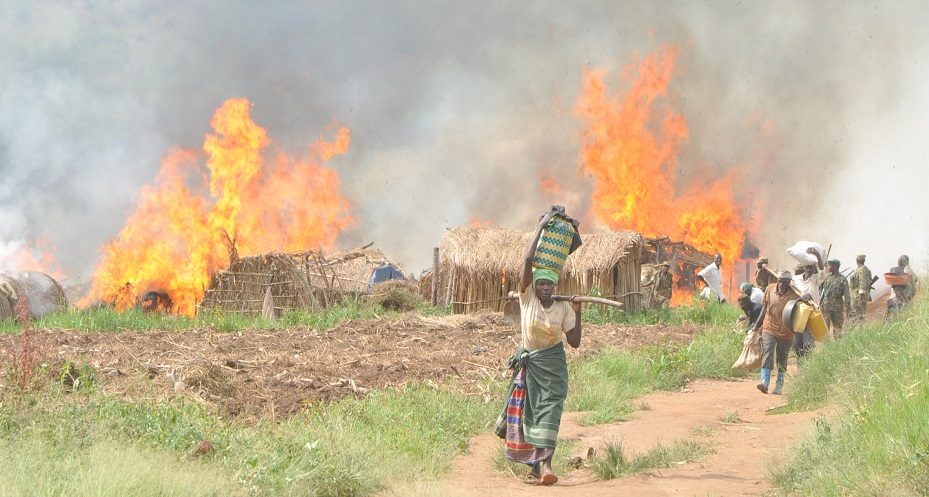

Land grabs victims in Uganda meet amid escalating cases of illegal evictions and rights violations
WITNESS RADIO MILESTONES
Top 10 agribusiness giants: corporate concentration in food & farming in 2025
Published
2 weeks agoon
June 19, 2025
Today a handful of agribusiness corporations have consolidated unprecedented control over the world’s food supply, with devastating consequences for farmers, consumers and the planet. A new report by ETC Group and GRAIN examines the state of corporate concentration in six sectors critical to agriculture: commercial seeds, pesticides, synthetic fertilisers, farm machinery, animal pharmaceuticals and livestock genetics.
Corporate consolidation is increasing in most of these sectors and four of them– seeds, pesticides, agricultural machinery and animal pharmaceuticals– now meet the definition of an oligopoly, in which four companies control more than 40% of a market. Concentration can be even higher at the national level, as is the case with synthetic fertilisers.
Top findings from the report include:
- Oligopolies dominate key sectors: Bayer, Corteva, Syngenta, and BASF control 56% of the global commercial seeds market, and 61% of the pesticides market.
- Profiteering amid global crises: Agribusiness giants have exploited crises like the Ukraine war and the COVID-19 pandemic to inflate prices. Fertiliser companies, for instance, saw revenues soar by 57% from 2020 to 2023, with some accused of price gouging.
- Digital and biotech expansion: Corporations are rapidly integrating AI, gene editing, and digital platforms into agriculture through partnerships with Big Tech companies. These technologies enable data extraction from farmers, facilitate carbon credit schemes, and tighter control over food systems—while raising concerns about biosafety, privacy, and corporate monopolies.
Source: grassrootsonline
Related posts:

 A corporate cartel fertilises food inflation
A corporate cartel fertilises food inflation
 Food inflation: The math doesn’t add up without factoring in corporate power
Food inflation: The math doesn’t add up without factoring in corporate power
 African governments are giving in to corporate pressure and undermining local seed systems – report
African governments are giving in to corporate pressure and undermining local seed systems – report
 The United Nations Food Systems Summit is a corporate food summit —not a “people’s” food summit
The United Nations Food Systems Summit is a corporate food summit —not a “people’s” food summit
WITNESS RADIO MILESTONES
Land grabbers evict 360,000 Ugandans in 2024
Published
7 months agoon
November 20, 2024
A staggering 363,021 Ugandans were displaced due to forced land evictions between January and June 2024, according to a new report by Witness Radio Uganda.
The report documented 90 cases of land evictions during this period, with nearly four incidents occurring weekly, affecting over 15,126 people and threatening 5,060 hectares of land nationwide.
The Central region was the epicenter, recording 52 eviction cases, followed by 24 in the Western region, eight in the Northern region, and six in the Eastern region. Alarmingly, the report estimated that 2,160 Ugandans face eviction daily, with 723 hectares of land at risk of being grabbed every day.
VIOLENCE AND HUMAN RIGHTS VIOLATIONS
Despite government promises and directives from President Museveni to halt evictions, land grabbers have routinely ignored these orders, often resorting to violence. Armed security forces, private militias, and police were reported to have carried out the majority of the evictions.
Of the reported cases, 37 were enforced by armed gangs on behalf of evictors, 25 involved Uganda Police, five were carried out with the participation of UPDF soldiers, and four were linked to private security companies.
“The egregious levels of impunity exhibited by land grabbers have left communities defenseless, creating an environment where their human rights are trampled without consequence,” said Jeff Wokulira Ssebaggala, country director of Witness Radio Uganda.
He called for accountability and justice, warning that the unchecked power of influential individuals and entities leaves marginalized communities vulnerable and without recourse.
DRIVERS OF EVICTIONS: INDUSTRIALIZATION AND LAND-BASED INVESTMENTS
The report identified the government’s push for industrialization and land-based investments as the primary drivers of forced evictions. Land is increasingly targeted for oil and gas extraction, mining, agribusiness and tree plantations for carbon offsets. While some of this land is already under development, other parcels remain vacant but are guarded by military personnel and private security firms.
Ssebaggala emphasized that industrialization must balance economic development with the protection of smallholder farmers’ rights to land and food security.

TRAGIC STORIES
The report highlighted harrowing cases that underscore the human toll of forced evictions. In Nakasongola, smallholder farmer Dan Ssebyala was ambushed and killed by armed men following a confrontation over disputed land. The district has become a hotspot for violent evictions involving absentee landlords and powerful investors.
Ismael Bwowe, a disabled father of 20, recounted how his land was confiscated after he demanded fair compensation. He faced intimidation, arrests and false charges from state authorities, including being accused of robbing an influential individual. Bwowe claimed that Total Energies offered legal support and representation on the condition that he accept their compensation terms.
“I refused,” he said, adding that the pressure to relinquish his land remains intense. The report underscores the urgent need for reforms to address forced evictions, ensure accountability, and protect the rights of vulnerable communities. Without meaningful intervention, Uganda risks deepening inequality and undermining the livelihoods of smallholder farmers who are essential to the country’s food security.
FAMILY JAILED AMID LAND DISPUTE
The plight of Richard Ssebagala, his wife Prossy Namande, and their relative Anania Ngabirano, residents of Kabubu-Kabongo village in Nansana Municipality, Wakiso district, highlights the human toll of Uganda’s ongoing land disputes. The family spent nine months in prison following their arrest on January 10, 2024, under controversial circumstances.
ARREST AND ALLEGATIONS
The arrests occurred at 1am, during a raid by officers from Luweero police station. Police reportedly banged on the doors and forcefully detained the family, accusing them of aggravated robbery. However, the family believes the arrest was a tactic linked to a land dispute with Benon Ntambi, a man who allegedly grabbed their land.
Before the arrests, Ntambi had reportedly destroyed crops, including tomatoes, potatoes, and bananas, on the contested land. While the family was incarcerated, a new building was constructed on their land, which is now occupied, raising further questions about the motivations behind their detention.
CALLS FOR JUSTICE
The case has drawn attention from Witness Radio Uganda, which has urged the government to take immediate action to address land grabbing and illegal evictions. The organization emphasized the need to strengthen land laws and protect vulnerable communities from abuses.
It also called for greater accountability in institutions such as the Uganda Police Force, the army and land registries, which are often accused of corruption and favoritism toward the wealthy.
“The government must prioritize justice for victims of illegal evictions and address systemic corruption that leaves the poor defenseless against land grabbers,” Witness Radio Uganda stated.
BROADER CONTEXT
This case underscores the broader issue of land conflicts in Uganda, where vulnerable families are often caught in disputes with powerful individuals or entities. Advocacy groups warn that the failure to address these issues not only erodes public trust but also perpetuates inequality and injustice.
As the government faces mounting pressure to act, the story of Ssebagala and his family serves as a stark reminder of the urgent need for reforms to protect land rights and ensure justice for those impacted by land disputes.
Source: The Observer
Related posts:

 Local land grabbers evict villagers at night; foreign investors cultivate the same lands the next day
Local land grabbers evict villagers at night; foreign investors cultivate the same lands the next day
 Uganda: Land-grab victim communities will join counterparts in commemorating the 2024 International Day of Struggle Against Industrial Plantations.
Uganda: Land-grab victim communities will join counterparts in commemorating the 2024 International Day of Struggle Against Industrial Plantations.
 Mubende Land Grab: Witnessradio.org presents another petition to Land Inquiry Commission, Wants All Titles being used to evict Natives to be Investigated
Mubende Land Grab: Witnessradio.org presents another petition to Land Inquiry Commission, Wants All Titles being used to evict Natives to be Investigated
 A Nullity? Ugandans Query Constitutional Land Amendment Bill
A Nullity? Ugandans Query Constitutional Land Amendment Bill
WITNESS RADIO MILESTONES
Uganda: Community members violently evicted by security forces, allegedly related to EACOP; incl. co. responses
Published
7 months agoon
November 18, 2024
On 10 February 2023, more than 2,500 community members were forcibly evicted from their land in Kapapi village in Hoima district in Western Uganda by security forces, receiving no compensation or resettlement.
Witness Radio, an Ugandan non-profit organisation comprised of human rights investigative journalists, lawyers, and social workers, said that many people were wounded during the eviction, women were raped, and houses were destroyed.
Witness Radio said its investigations found that this eviction occurred to clear the path for the Tilenga feeder pipeline, part of the East African Crude Oil Pipeline (EACOP). According to Witness Radio, in 2022 Kapapi community members’ land was surveyed for the Tilenga pipeline and people were informed they would be compensated for the land. Instead, they were forcibly evicted, which Witness Radio allege was backed and financed by Swacoff Intertrade Company Limited, known to TotalEnergies. They also allege that guards from private security company Magnum Security were involved. Witness Radio has also found that dozens of local farmers who were evicted have been arbitrarily arrested and face criminal charges.
The Business & Human Rights Resource Centre invited TotalEnergies, Swacoff Intertrade Company Limited, and Magnum Security to respond to the allegations. TotalEnergies responded and stated that no land eviction activities had been carried out by or on behalf of TotalEnergies EP Uganda (TEPU) and EACOP Ltd and that none of the affected people are Tilenga or EACOP Project Affected Persons. Swacoff responded and said that the company has never engaged in forceful eviction of any sort and asserts that these allegations are completely false. Their full responses and rejoinders from Witness Radio are available below. Magnum Security did not respond.
Related posts:

 Uganda: NGO claims Agilis Partners & Great Seasons violently evicted locals to pave the way for agribusiness; Agilis Partners responds
Uganda: NGO claims Agilis Partners & Great Seasons violently evicted locals to pave the way for agribusiness; Agilis Partners responds
 A son of the community defender is shot dead, another critically injured in a retaliatory attack by security guards evicting locals off their land to give way to large-scale sugarcane growing.
A son of the community defender is shot dead, another critically injured in a retaliatory attack by security guards evicting locals off their land to give way to large-scale sugarcane growing.
 Breaking: Criminal trial for seven community defenders opposed to EACOP/Tilenga project forced land eviction has been fixed.
Breaking: Criminal trial for seven community defenders opposed to EACOP/Tilenga project forced land eviction has been fixed.
 Uganda: CSOs claim Agilis Partners forcibly evicting local communities to pave way for agribusiness; company did not respond
Uganda: CSOs claim Agilis Partners forcibly evicting local communities to pave way for agribusiness; company did not respond

A decade of displacement: How Uganda’s Oil refinery victims are dying before realizing justice as EACOP secures financial backing to further significant environmental harm.

Carbon Markets Are Not the Solution: The Failed Relaunch of Emission Trading and the Clean Development Mechanism

Govt launches Central Account for Busuulu to protect tenants from evictions

Top 10 agribusiness giants: corporate concentration in food & farming in 2025

Uganda’s top Lands Ministry official has been arrested and charged with Corruption and Abuse of Office, a significant event that will have far-reaching implications for land governance in the country.

A decade of displacement: How Uganda’s Oil refinery victims are dying before realizing justice as EACOP secures financial backing to further significant environmental harm.

Govt launches Central Account for Busuulu to protect tenants from evictions

Environmentalists raise red flags over plan to expand oil palm fields in Kalangala

Innovative Finance from Canada projects positive impact on local communities.
Over 5000 Indigenous Communities evicted in Kiryandongo District
Petition To Land Inquiry Commission Over Human Rights In Kiryandongo District
Invisible victims of Uganda Land Grabs
Resource Center
- LAND GRABS AT GUNPOINT REPORT IN KIRYANDONGO DISTRICT
- RESEARCH BRIEF -TOURISM POTENTIAL OF GREATER MASAKA -MARCH 2025
- The Mouila Declaration of the Informal Alliance against the Expansion of Industrial Monocultures
- FORCED LAND EVICTIONS IN UGANDA TRENDS RIGHTS OF DEFENDERS IMPACT AND CALL FOR ACTION
- 12 KEY DEMANDS FROM CSOS TO WORLD LEADERS AT THE OPENING OF COP16 IN SAUDI ARABIA
- PRESENDIANTIAL DIRECTIVE BANNING ALL LAND EVICTIONS IN UGANDA
- FROM LAND GRABBERS TO CARBON COWBOYS A NEW SCRAMBLE FOR COMMUNITY LANDS TAKES OFF
- African Faith Leaders Demand Reparations From The Gates Foundation.
Legal Framework
READ BY CATEGORY
Newsletter
Trending
-

 MEDIA FOR CHANGE NETWORK1 week ago
MEDIA FOR CHANGE NETWORK1 week agoA decade of displacement: How Uganda’s Oil refinery victims are dying before realizing justice as EACOP secures financial backing to further significant environmental harm.
-

 MEDIA FOR CHANGE NETWORK1 week ago
MEDIA FOR CHANGE NETWORK1 week agoGovt launches Central Account for Busuulu to protect tenants from evictions
-

 WITNESS RADIO MILESTONES2 weeks ago
WITNESS RADIO MILESTONES2 weeks agoTop 10 agribusiness giants: corporate concentration in food & farming in 2025
-

 MEDIA FOR CHANGE NETWORK1 week ago
MEDIA FOR CHANGE NETWORK1 week agoCarbon Markets Are Not the Solution: The Failed Relaunch of Emission Trading and the Clean Development Mechanism
